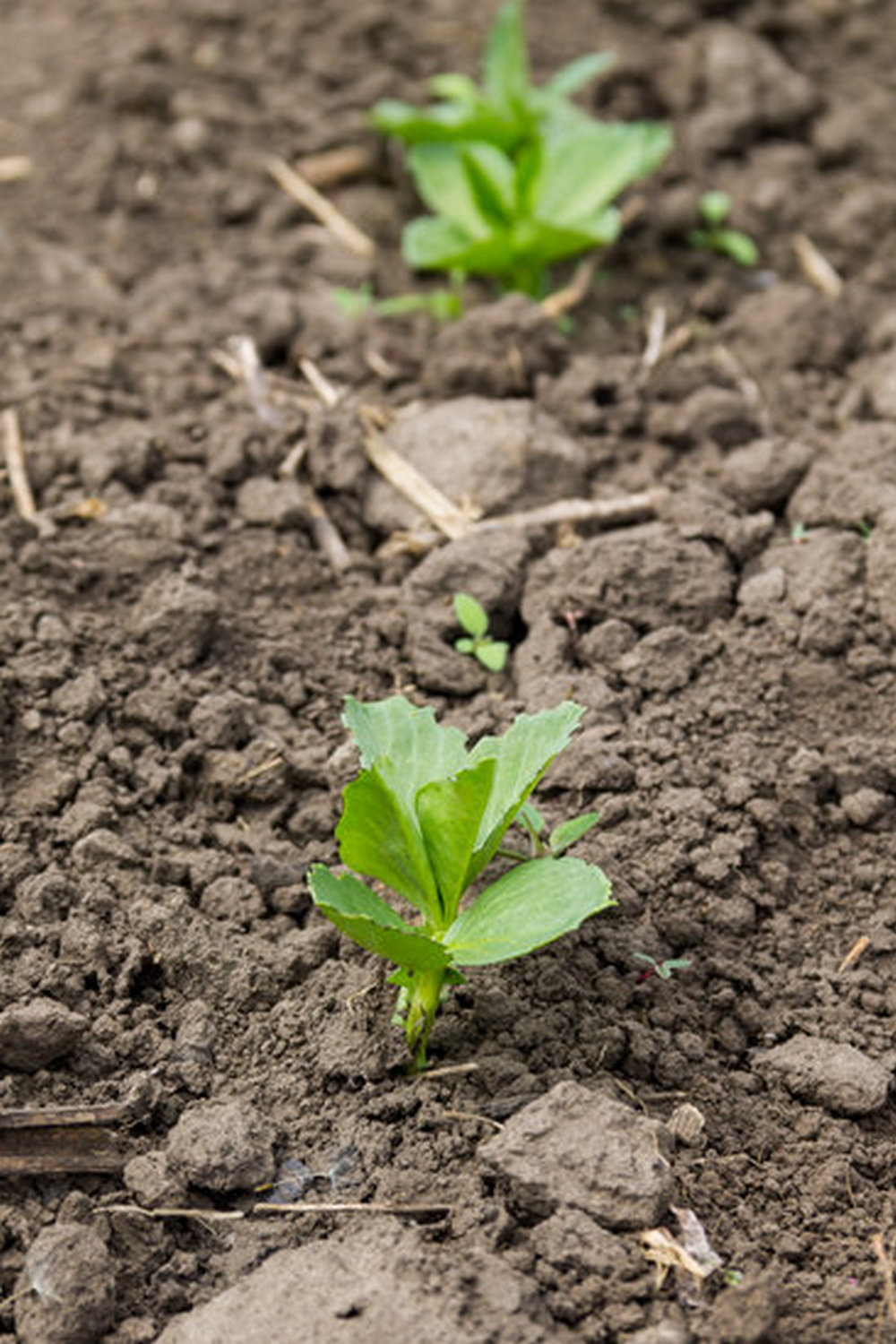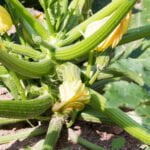Alpaca manure is becoming increasingly popular as a sustainable fertilizer for vegetable gardens, providing a natural and effective way to nourish plants. This organic material is rich in nutrients essential for plant growth and can significantly enhance the health and productivity of your vegetable garden. Alpaca manure contains key elements like nitrogen, phosphorus, and potassium, making it an excellent choice for promoting robust plant development.
One of the primary reasons why alpaca manure is highly beneficial for vegetable gardens is its ability to improve soil structure and increase water retention. The fibrous nature of alpaca manure helps in aerating the soil, preventing compaction, and promoting root growth. Additionally, the slow-release properties of this natural fertilizer enable a steady supply of nutrients to plants over time, reducing the risk of nutrient leaching and ensuring continuous nourishment.
Furthermore, alpaca manure is considered a mild fertilizer compared to other animal manures, making it less likely to burn plants when applied correctly. Its low odor also makes it a desirable option for gardeners who prefer a more pleasant working environment. By understanding the nutrient value of alpaca manure and how to properly use it in your vegetable garden, you can harness its potential to cultivate thriving plants while contributing to sustainable gardening practices.
Why Alpaca Manure Is Beneficial for Vegetable Gardens
Alpaca manure is renowned for its numerous benefits when used as a fertilizer in vegetable gardens. Here are some key reasons why it is considered a valuable resource for gardeners looking to cultivate healthy and thriving vegetable plants:
- Low Odor: Unlike other types of manure, alpaca manure has a mild and relatively low odor, making it more pleasant to work with in your garden.
- High Nutrient Content: Alpaca manure is rich in essential nutrients such as nitrogen, phosphorus, and potassium, which are vital for the healthy growth of vegetable plants.
- Slow-Release Properties: The slow-release nature of alpaca manure allows for a steady supply of nutrients to plants over time, promoting sustainable growth and minimizing the risk of nutrient leaching.
In addition to these benefits, alpaca manure is also known for its weed-suppressing properties, thanks to its ability to improve soil structure and moisture retention. This can help reduce the need for herbicides and mulching in your vegetable garden, creating a more natural and eco-friendly growing environment.
When properly utilized, alpaca manure can significantly enhance the overall health and productivity of your vegetable garden. Incorporating this sustainable fertilizer into your gardening practices can lead to bountiful harvests of fresh and nutritious produce while reducing the reliance on chemical fertilizers that may harm the environment or contaminate your crops.
- As you continue reading through this article, you will discover practical tips on how to effectively use alpaca manure in your vegetable garden to maximize its benefits.
- You will also learn about the nutrient value of alpaca manure for different types of vegetable plants and how composting can further enrich its quality.
- Embrace the power of alpaca manure for sustainable gardening success and witness firsthand the positive impact it can have on your vegetable garden’s vitality and yield.
Nutrient Value of Alpaca Manure for Vegetable Plants
Alpaca manure is a valuable resource that can significantly enhance the health and productivity of vegetable plants in your garden. Rich in essential nutrients such as nitrogen, phosphorus, and potassium, alpaca manure provides a natural and sustainable source of fertilization for your garden beds. These nutrients are vital for promoting strong root development, robust foliage growth, and abundant fruit production in your vegetable plants.
In addition to the essential macronutrients, alpaca manure also contains a variety of micronutrients that are critical for overall plant health. Elements like calcium, sulfur, magnesium, and zinc present in alpaca manure contribute to improved nutrient absorption and enzymatic processes within the plant cells. By incorporating alpaca manure into your vegetable garden soil, you can ensure that your plants have access to a well-balanced diet of nutrients for optimal growth and vitality.
Moreover, alpaca manure has the added benefit of being low in odor compared to other types of animal manure like cow or chicken. This makes it a convenient choice for home gardeners who may be concerned about unpleasant smells emanating from their compost piles or garden beds.
Furthermore, alpaca manure is known to have a lower risk of pathogens or weed seeds compared to other types of manure, reducing the chances of introducing unwanted pests or diseases into your vegetable garden ecosystem.
| Beneficial Nutrients | Advantages |
|---|---|
| Nitrogen | Promotes strong root development |
| Phosphorus | Enhances robust foliage growth |
| Potassium | Supports abundant fruit production |
How to Properly Use Alpaca Manure in Vegetable Gardens
Alpaca manure is a valuable resource for vegetable gardens due to its numerous benefits for plant growth and soil health. When used properly, alpaca manure can provide essential nutrients that promote healthy vegetable plants and improve soil structure. Here are some tips on how to properly use alpaca manure in your vegetable garden to achieve optimal results.
First and foremost, it is important to let the alpaca manure age or compost before using it in your vegetable garden. Fresh manure can be too strong for young plants and may contain harmful pathogens. By composting the manure for at least three to six months, you allow beneficial microbes to break down the organic matter into a nutrient-rich fertilizer that is safe for your plants.
Once the alpaca manure has been properly composted, you can apply it to your vegetable garden in a few different ways. One common method is top-dressing, where you sprinkle a layer of composted alpaca manure over the soil surface around your plants.
This provides a slow-release source of nutrients as the manure breaks down further. Alternatively, you can mix the composted alpaca manure into the soil before planting or use it to create nutrient-rich potting mixes for container gardening.
In addition to using composted alpaca manure as a fertilizer, you can also brew it into a liquid fertilizer by steeping it in water for several days. This aerated compost tea can be applied directly to plant foliage as a foliar feed, providing an extra boost of nutrients and beneficial microbes. Overall, proper use of alpaca manure in your vegetable garden can lead to healthier plants, higher yields, and improved soil quality over time.
Tips for Composting Alpaca Manure for Maximum Benefits
Alpaca manure is not only a valuable fertilizer for vegetable gardens but also an excellent addition to compost piles. Composting alpaca manure can enhance its nutrient content and ensure that it is properly balanced before being applied to your garden. Here are some tips for composting alpaca manure for maximum benefits:
- Combine with Carbon-rich Material: To create a well-balanced compost, mix alpaca manure with carbon-rich materials such as straw, dry leaves, or shredded paper. This helps maintain the carbon-to-nitrogen ratio necessary for optimal decomposition.
- Aerate the Pile: Turning the compost pile regularly will introduce oxygen, stimulating decomposition and preventing the formation of anaerobic pockets that can produce unpleasant odors. Alpaca manure compost should be turned every few weeks to ensure proper breakdown.
- Monitor Moisture Levels: It’s essential to keep the compost pile moist but not waterlogged. Aim for a consistency similar to a damp sponge – too much moisture can slow down decomposition, while too little can impede microbial activity.
Composting alpaca manure can take several weeks to a few months, depending on factors such as temperature, moisture levels, and how often it is turned. Once the compost has fully decomposed and matured, it will be a rich, dark material ready to nourish your vegetable plants. By following these tips for composting alpaca manure effectively, you can maximize its nutrient content and promote healthy growth in your vegetable garden.
Remember that using alpaca manure in combination with other organic materials in your compost pile can result in a well-rounded blend of nutrients for your vegetables. Experiment with different ratios of alpaca manure to carbon-rich materials to find what works best for your garden’s specific needs. With patience and proper care during the composting process, you’ll soon reap the rewards of utilizing this sustainable fertilizer in your vegetable garden.
Common Misconceptions About Alpaca Manure for Vegetable Gardens
Alpaca manure is a valuable and sustainable fertilizer that often faces misconceptions when it comes to its use in vegetable gardens. One common misconception is the worry about odor, as some gardeners fear that using alpaca manure will result in a foul smell in their gardens.
However, alpaca manure has a mild earthy scent that is not overwhelming and fades quickly once applied to the soil. Compared to other animal manures, such as cow or chicken, alpaca manure is known for having less odor, making it a great option for home gardeners.
Another misconception about alpaca manure is the concern about potential weeds or unwanted plants growing in the garden as a result of using it. The truth is that properly composted alpaca manure contains fewer weed seeds compared to other types of organic fertilizers. When the composting process reaches high temperatures, it helps to kill off weed seeds and pathogens, ensuring that your vegetable garden stays free from unwanted intruders.
Moreover, there is a misconception regarding the nutrient content of alpaca manure. Some may believe that since alpacas are herbivores and have a plant-based diet, their manure might lack essential nutrients for vegetable plants. Contrary to this belief, alpaca manure is rich in nitrogen, phosphorus, and potassium – key elements necessary for healthy plant growth. In fact, its nutrient composition makes it an excellent choice for boosting soil fertility and promoting robust growth in vegetable crops when used correctly.
| Misconception | Reality |
|---|---|
| Concerns about strong odor | Alpaca manure has a mild earthy scent that fades quickly. |
| Potential weed growth | Properly composted alpaca manure contains fewer weed seeds. |
| Perceived lack of nutrients | Alpaca manure is rich in nitrogen, phosphorus, and potassium. |
Case Studies
Alpaca Manure: A Gardener’s Secret Weapon
One of the best-kept secrets in the world of sustainable gardening is the use of alpaca manure for vegetable gardens. This natural fertilizer has been proven time and time again to provide a plethora of benefits for plants, leading to lush growth and bountiful harvests. Through various case studies, it has become evident that alpaca manure is a gardener’s secret weapon for achieving gardening success.
Increased Nutrient Absorption and Plant Health
One of the key reasons why vegetable gardens thrive with alpaca manure is due to its high nutrient content. Alpaca manure is rich in essential nutrients like nitrogen, phosphorus, potassium, and micronutrients, which are vital for plant growth. These nutrients are readily absorbed by vegetable plants when alpaca manure is incorporated into the soil, resulting in healthier plants that are more resistant to diseases and pests.
Enhanced Soil Structure and Water Retention
In addition to providing essential nutrients, alpaca manure also helps improve soil structure by promoting better aeration and drainage. This ultimately leads to better water retention in the soil, reducing the need for frequent watering during dry periods.
The enhanced soil structure also encourages beneficial microbial activity, further contributing to the overall health of the garden ecosystem. By using alpaca manure in vegetable gardens, gardeners not only provide essential nutrients but also create an optimal environment for plant growth and development.
Where to Source Quality Alpaca Manure for Your Vegetable Garden
When it comes to incorporating alpaca manure into your vegetable garden, sourcing quality material is essential for maximizing its benefits. Fortunately, there are several avenues you can explore to obtain high-quality alpaca manure for your gardening needs.
Local Alpaca Farms
One of the best ways to source quality alpaca manure is by connecting with local alpaca farms in your area. Many alpaca farmers sell or even give away their manure as a natural fertilizer for gardens. By establishing a relationship with these farmers, you not only gain access to fresh and rich alpaca manure but also support sustainable agricultural practices within your community.
Garden Supply Stores
Some garden supply stores may carry bagged or bulk alpaca manure for sale. This can be a convenient option if you don’t have direct access to alpaca farms in your area. Be sure to inquire about the quality and source of the manure to ensure it meets your standards for organic gardening.
Online Suppliers
For those who may not have local access to alpaca farms or garden supply stores carrying alpaca manure, there are online suppliers that specialize in selling this natural fertilizer. When purchasing online, be sure to read reviews and do some research on the supplier’s reputation to ensure you are getting a reliable product for your vegetable garden.
By exploring these various sources, you can find quality alpaca manure to enrich and nourish your vegetable garden while contributing to sustainable gardening practices. Remember that using organic fertilizers like alpaca manure not only benefits your plants but also promotes healthier soil and ecosystem in the long run.
Conclusion
Alpaca manure has proven to be a valuable resource for gardeners seeking sustainable and effective fertilizers for their vegetable gardens. Its nutrient-rich composition, which includes essential elements like nitrogen, phosphorus, and potassium, provides the necessary nourishment for healthy plant growth. This natural alternative to synthetic fertilizers offers numerous advantages, not only for the plants themselves but also for the environment as a whole.
By utilizing alpaca manure in vegetable gardens, gardeners can increase soil fertility, improve soil structure, and enhance overall plant health. The slow-release nature of the nutrients in alpaca manure ensures that plants receive a steady supply of food over time, leading to more robust growth and higher yields.
Additionally, the organic matter found in alpaca manure helps to retain moisture in the soil, reducing the need for excessive watering and promoting water conservation-an important factor in sustainable gardening practices.
In conclusion, embracing the power of alpaca manure for sustainable gardening success is a decision that benefits both gardeners and the environment. By understanding the nutrient value of alpaca manure, learning how to properly use it in vegetable gardens, and composting it effectively, gardeners can unlock its full potential as a natural fertilizer.
Through case studies showcasing thriving vegetable gardens fueled by alpaca manure and knowing where to source quality products, gardeners can make informed choices that lead to healthier plants, bountiful harvests, and a greener future. So why not give alpaca manure a try in your vegetable garden and witness firsthand its transformative effects on your growing space?
Frequently Asked Questions
Is Alpaca Manure Good for Vegetable Garden?
Alpaca manure is indeed excellent for vegetable gardens. It is rich in nutrients like nitrogen, phosphorus, and potassium, which are essential for plant growth. Additionally, alpaca manure has a balanced pH level that won’t harm plants.
How Do You Use Alpaca Poo in the Garden?
When using alpaca poo in the garden, it’s best to let it age or compost before applying it to the soil. This aging process allows any harmful bacteria to break down and ensures that the nutrients are readily available to plants. You can mix the composted manure into the soil or use it as mulch around your vegetables.
What Is the Best Manure for Growing Vegetables?
The best manure for growing vegetables largely depends on personal preference and availability. However, some popular options include well-aged cow or horse manure, chicken manure, and composted kitchen scraps.
These types of manure provide essential nutrients to support vegetable growth without burning the plants with excess nitrogen. Ultimately, the best choice will depend on factors like nutrient content and sustainability of sourcing.

If you’re looking to get into vegetable gardening, or are just looking for some tips on how to make your current garden better, then you’ve come to the right place! My name is Ethel and I have been gardening for years. In this blog, I’m going to share with you some of my best tips on how to create a successful vegetable garden.





